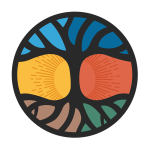In an effort to contribute to the revitalization of Indigenous legal orders and provide a more respectful welcome to Indigenous learners on an academic path in law, the University of Ottawa’s Civil Law Section has launched a new Certificate in Indigenous Law. This short video provides an overview of the project.
The certificate is the first French-language Indigenous law program in Canada. It will offer Indigenous learners an introduction to the legal systems of different Indigenous peoples in Canada, which they will be encouraged to compare with Quebec and Canadian state-derived systems in certain key areas of law. They will thus be able to get to know the sources, foundations, principles and rules of Indigenous and of state-derived law, including Quebec’s civil law regime.
Initiated by Professor Eva Ottawa, an Atikamekw-Nehirowiskwew and member of the Manawan community, with the support of Sophie Thériault, professor and Vice-Dean Academic at the Civil Law Section, this brand new program will enable Indigenous students to make their legal systems their own while minimizing the cultural shock they experience in their legal studies. This year-long certificate program (30 academic units) will also allow them to learn the fundamentals needed to succeed in the Licentiate in Law (civil law) program, and then move on to practice, graduate law studies or the JD program offered by the Common Law Section.
The program will receive assistance from the federal government, through the Department of Justice Canada, which has agreed to financially support the Visual Lab on Indigenous Legal Orders, created in conjunction with the Certificate in partnership with Jurivision.ca. This new Lab will enable the creation of short audiovisual capsules in collaboration with Indigenous partners, highlighting Indigenous justice and legal systems. Justice Canada’s financial support aligns with the Government of Canada’s response to the Truth and Reconciliation Commission’s Calls to Action.
Launch of the Certificate in Indigenous Law at the University of Ottawa Civil Law Section
This video features the launch event for the new program, which took place on August 17, 2022. The event included comments from Eva Ottawa, the Dean of the Civil Law Section, Marie-Eve Sylvestre, and University of Ottawa President, Jacques Frémont, as well as a ceremonial welcome by Gilbert Whiteduck, Elder-in-residence at the University of Ottawa, a song of honour performed by Brad Picody and his band, and speeches by the Honorable David Lametti, Minister of Justice for Canada and Ghislain Picard, Regional Chief of the Assembly of First Nations, Quebec-Labrador. Eva Ottawa and Sophie Thériault closed the event by introducing the first cohort of students and the academic team.

